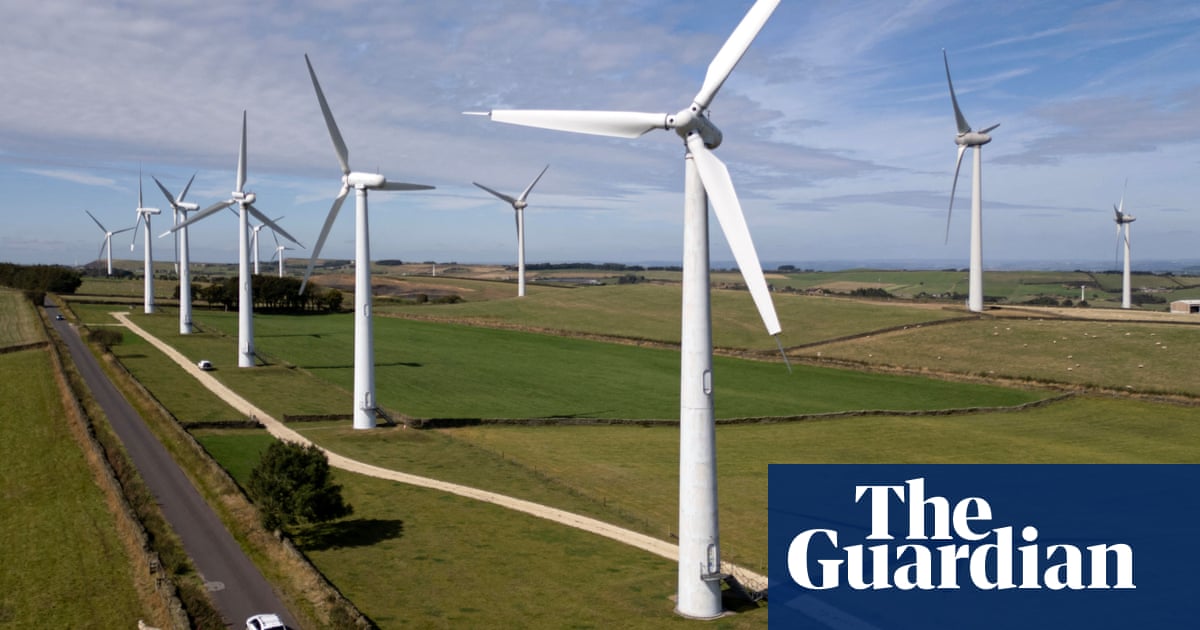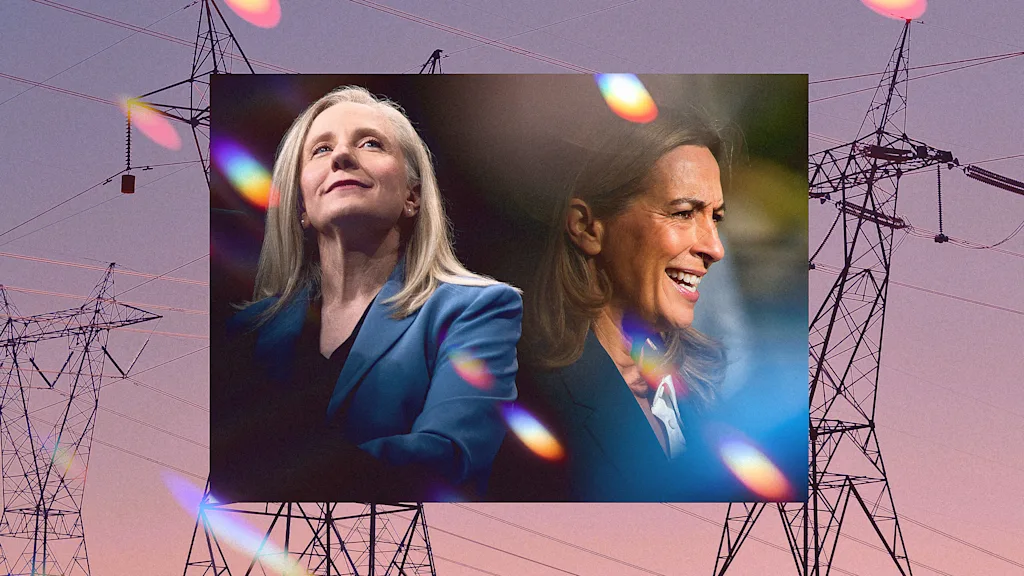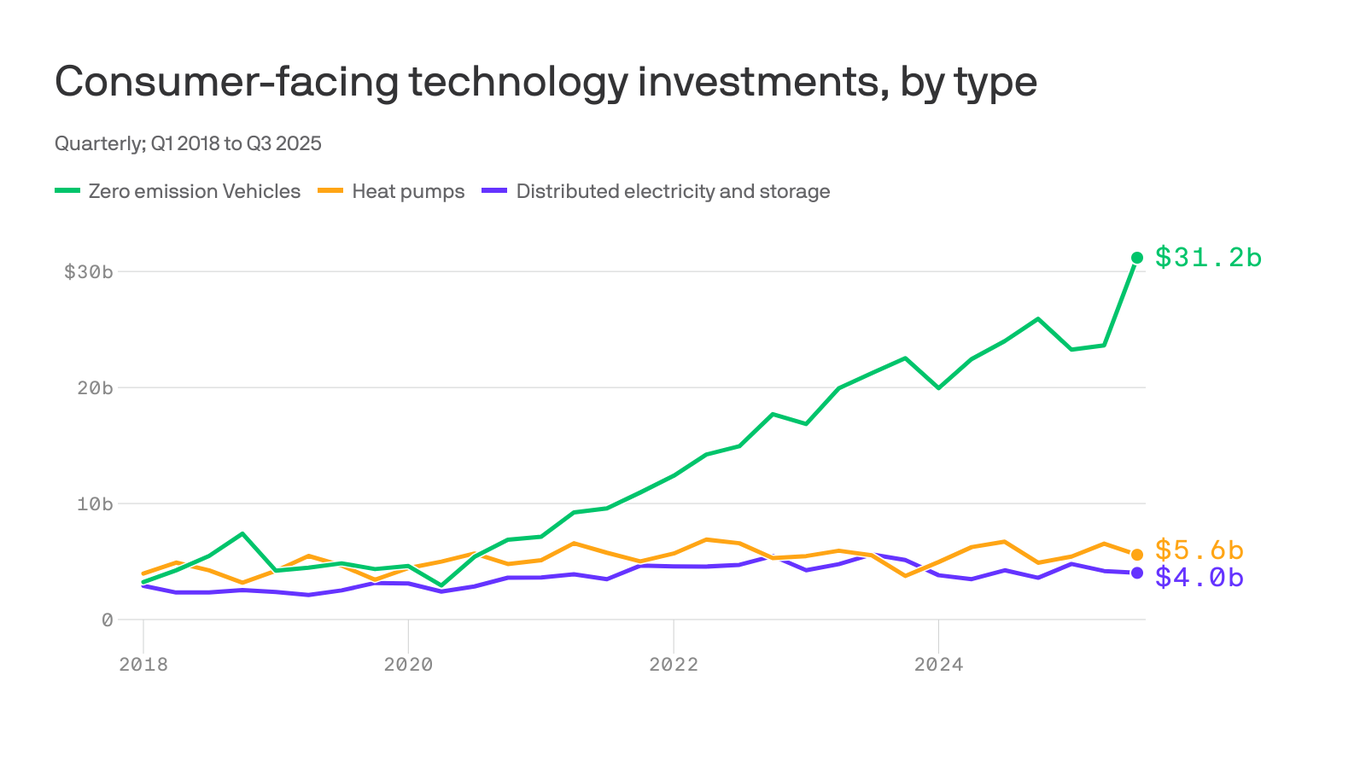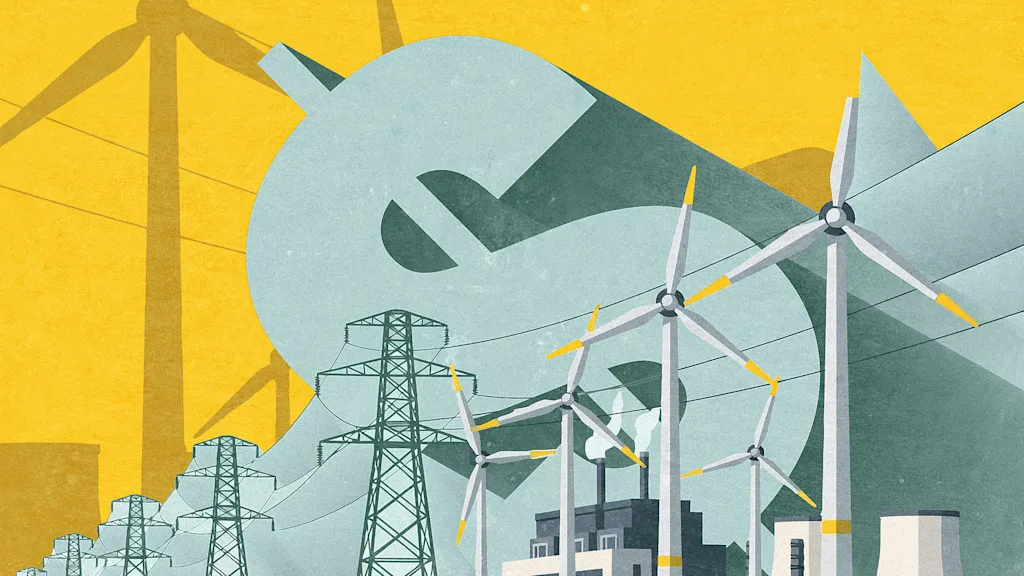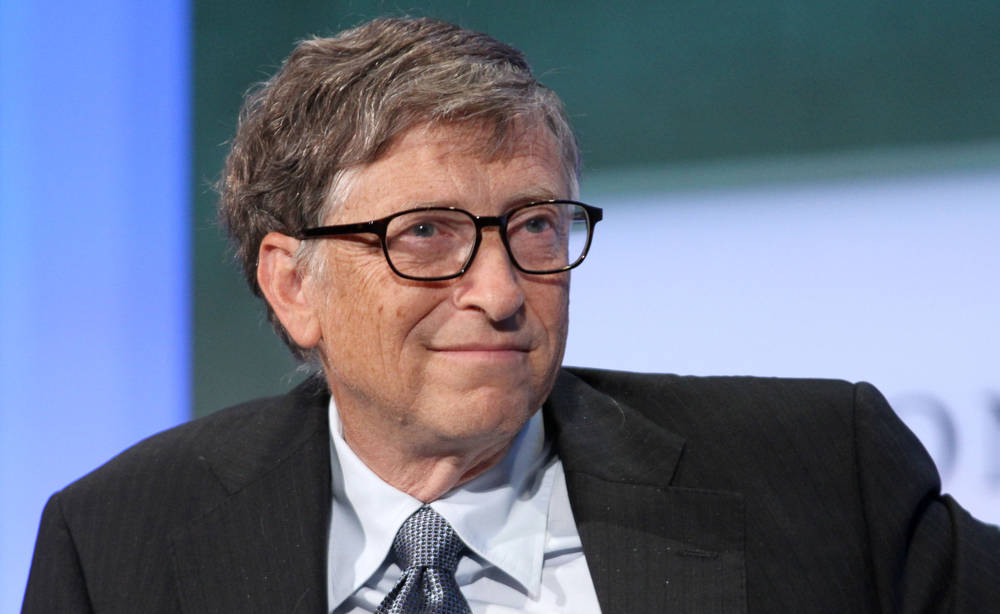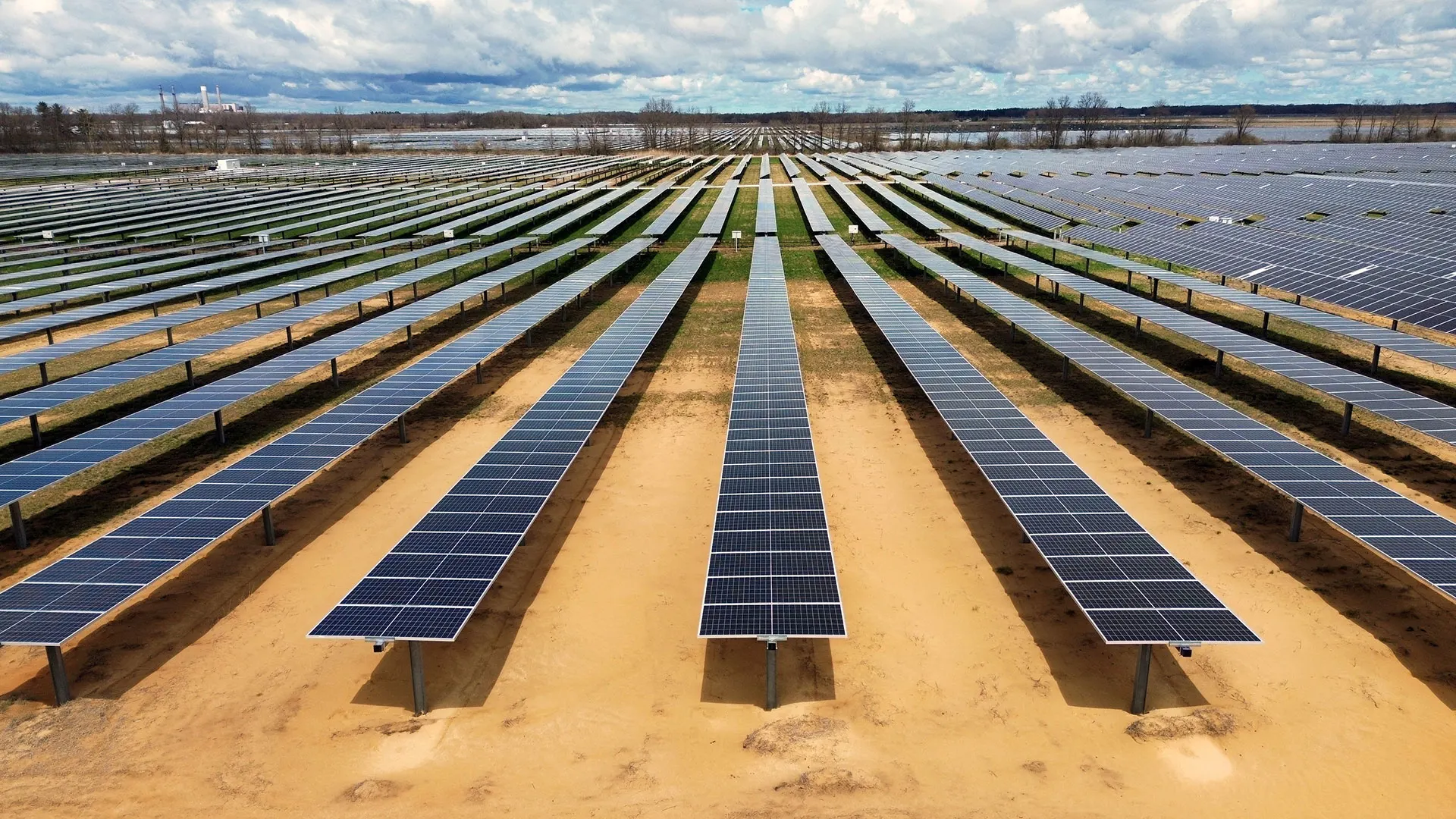#clean-energy
#clean-energy
[ follow ]
#climate-policy #climate-change #energy-policy #electric-vehicles #california #sustainability #data-centers
fromwww.theguardian.com
1 week agoCoal power generation falls in China and India for first time since 1970s
Coal power generation fell in China and India for the first time since the 1970s last year, in a historic moment that could bring a decline in global emissions, according to analysis. The simultaneous fall in coal-powered electricity in the world's biggest coal-consuming countries had not happened since 1973, according to analysts at the Centre for Research on Energy and Clean Air, and was driven by a record roll-out of clean energy projects.
Environment
from24/7 Wall St.
1 week agoA Clean Energy ETF Soared 50% While Everyone Moved On
iShares Global Clean Energy ETF ( NYSEARCA:ICLN) delivered a 49% return over the past year, nearly tripling the S&P 500's 18% gain. The fund tracks approximately 100 global companies in renewable energy, utilities, and clean technology. With $1.9 billion in assets and a 0.39% expense ratio, ICLN provides broad exposure to solar, wind, fuel cells, and electric utilities positioned to benefit from surging power demand.
Business
fromFast Company
3 weeks agoMore than $32 billion in U.S. clean energy projects were canceled in 2025
Two years ago, a $575 million battery factory planned in St. Louis, Missouri, was set to be the first large-scale lithium iron phosphate (LFP) facility in the U.S. This November, after the Trump administration withdrew a grant for the project, it was cancelled -becoming one of more than 50 major clean energy projects to be scrapped or scaled back in 2025.
US politics
US politics
fromFortune
1 month agoStruggling Trump Media marries nuclear fusion in $6B deal that's 'ridiculous' expansion of 'Trump grift' or a boost to the tech that changes the world | Fortune
Trump Media merges with fusion developer TAE Technologies, betting on capital inflows and faster commercialization of fusion despite delayed revenues and political scrutiny.
fromwww.nytimes.com
1 month agoChina's Clean Energy Push is Powering Flying Taxis, Food Delivery Drones and Bullet Trains
But China has now raced far beyond the flirtation stage. It's rolling out fleets of autonomous delivery trucks, experimenting with flying cars and installing parking lot robots that can swap out your E.V.'s dying battery in just minutes. There are drones that deliver lunch by lowering it from the sky on a cable. If all that sounds futuristic and perhaps bizarre, it also shows China's ambition to dominate clean energy technologies of all kinds,
Gadgets
Artificial intelligence
fromFortune
1 month agoGoogle DeepMind agrees to sweeping research collaboration with the U.K. government | Fortune
Google DeepMind and the U.K. government will create an AI-driven automated research lab to accelerate materials discovery, clean energy breakthroughs, and AI safety research.
fromwww.theguardian.com
1 month agoMore than 1,000 Amazon workers warn rapid AI rollout threatens jobs and climate
More than 1,000 Amazon employees have signed an open letter expressing serious concerns about AI development, saying that the company's all-costs justified, warp speed approach to the powerful technology will cause damage to democracy, to our jobs, and to the earth. The letter, published on Wednesday, was signed by the Amazon workers anonymously, and comes a month after Amazon announced mass layoff plans as it increases adoption of AI in its operations.
Artificial intelligence
fromBig Think
1 month agoWhy the next 25 years will force humanity to reinvent itself
PETER LEYDEN: We're living in an extraordinary moment in history. We are at a moment here in 2025 where we have world historic game-changing technologies now starting to scale. Artificial intelligence, clean energy technologies, bioengineering, all here. We're at the cusp of a potentially a great era of progress. But America and the world itself are going through huge contortions. Old systems of the past are collapsing, and new systems of the future are still to be born.
Tech industry
US politics
fromIrish Independent
2 months agoAt COP30, California Governor Gavin Newsom blasts no-show Donald Trump for 'dumb' US climate policy
California will aggressively compete in clean energy as U.S. federal policy cedes market leadership to China, leveraging California's status as the world's fourth-largest economy.
fromComputerworld
2 months agoMicrosoft creates a team to make 'humanist superintelligence'
Suleyman identifies three areas where humanist superintelligence could have a transformative impact. The first is the personal AI companion, designed to assist people in their learning, productivity and well-being, without replacing human connection. The second is medical superintelligence, capable of delivering expert-level diagnostics and treatment, expanding global access to healthcare. And the third, clean and abundant energy, where AI would facilitate scientific discovery, resource optimization and development of sustainable generation technologies.
Artificial intelligence
Environment
fromFortune
2 months agoBill Gates got climate communication right. Let's focus on saving lives, not spreading fear | Fortune
Fear-based climate messaging is failing; reframing solutions to highlight health, community, and economic benefits can broaden support and accelerate clean-energy progress.
Food & drink
fromFood & Beverage Magazine
2 months agoCrush Your Day the Clean Way: Why Positive Energy's Melon Mania Is the Ultimate Upgrade to Your Energy Routine - Food & Beverage Magazine
Positive Energy Melon Mania offers a clean, watermelon-flavored energy drink with 160mg green-tea caffeine, vitamins, zinc, and electrolytes without artificial sweeteners or preservatives.
fromwww.mercurynews.com
3 months agoCalifornia joins coalition of states suing Trump administration for canceled solar program funding
The attorneys general of more than a dozen states on Thursday sued the Trump administration over the termination of $7 billion in funding intended for affordable solar energy projects across the U.S. The coalition, which also included the District of Columbia and other stakeholders, argued in the lawsuit that the Environmental Protection Agency's cancellation of the Solar for All program violated the law governing federal agencies and the constitutional separation of powers.
Environment
fromFortune
3 months agoBloom Energy's stock is up 1,000% in a year because its fuel cells are solving AI's data center power problem | Fortune
Aerospace engineer KR Sridhar always dreamed big: He used to work with NASA on technology to convert carbon dioxide into oxygen to support life on other planets or let humans breathe air on Mars. But as the Soviet Union fell and the space race slowed, Sridhar pivoted to providing clean energy technology for the rising global middle class. He cofounded Ion America in 2001-renamed Bloom Energy five years later-with a focus on fuel cells that deliver cleaner, on-site, off-grid power.
Environment
fromFlowingData
3 months agoCanceled $28B grants during government shutdown
There's been a lot going on and we almost forget that the federal government is approaching its third week of shutdown. The administration has used the time to cancel and pause billions in grants in the places you might guess. Tony Romm and Lazaro Gamio for the New York Times have the analysis.
US politics
fromwww.theguardian.com
3 months agoTrump's hatred for renewables means the US is falling behind the rest of the world
Six years after Donald Trump allegedly wrote a suggestive birthday note to Jeffrey Epstein, the current US president put his name to something that now seems almost as shocking: a letter calling for action on the climate crisis. In 2009 Trump, then a real estate developer and reality TV personality, was among a group of business leaders behind a full-page advertisement in the New York Times calling for legislation to control climate change, an immediate challenge facing the United States and the world today.
US politics
fromBusiness Matters
4 months agoGoogle pledges 5bn UK investment and opens Hertfordshire datacentre amid Trump visit
Google has unveiled plans to invest an additional £5 billion in the UK over the next two years, in a move it says will help expand the country's artificial intelligence economy, create thousands of jobs and accelerate breakthroughs in science and technology. The announcement coincides with the state visit of US President Donald Trump, during which major technology and energy deals are expected to dominate the agenda. The investment will include significant spending on Google's infrastructure, research and engineering teams, as well as support for Google DeepMind, its London-based AI arm. The company said the expansion would generate 8,250 " new AI-driven jobs " in Britain.
Artificial intelligence
fromLondon Business News | Londonlovesbusiness.com
5 months agoHousehold energy bills set to rise - London Business News | Londonlovesbusiness.com
"News of higher bills will not be welcomed by households, especially as winter approaches. While the added costs behind this forecasted rise are aimed at supporting those most in need, it does mean typical bills will increase despite relatively lower wholesale costs. It's a reminder that the price cap reflects more than just the market price of energy."
UK politics
fromTechzine Global
5 months agoEquinix tackles power problem with nuclear technology
Global electricity demand is growing by 4 percent annually, with significant contributions from AI-driven data centers. Equinix is securing future power through agreements with multiple nuclear companies.
Digital life
fromwww.scientificamerican.com
5 months agoChina Just Built a Clean-Energy System in Antarctica. Here's How.
Building a clean-energy system in Antarctica required overcoming extreme challenges, including temperatures below -40 degrees Celsius, fierce winds of up to 300 km/h, and perpetual darkness during polar nights.
Environment
fromSustainable Bus
5 months agoNew York State allocates additional $200 million for electric school buses and charging infrastructure - Sustainable Bus
New York State is allocating an additional $200 million to expand its electric school bus program, aimed at increasing the transition to zero-emission vehicles.
Alternative transportation
fromwww.theguardian.com
6 months agoGoogle inks $3bn US hydropower deal in largest clean energy agreement of its kind
Google has agreed to secure up to 3GW of US hydropower through a $3 billion deal with Brookfield Asset Management, the largest corporate clean power pact for hydroelectricity. This includes 20-year power purchase agreements for electricity from two Pennsylvania facilities.
Tech industry
[ Load more ]














